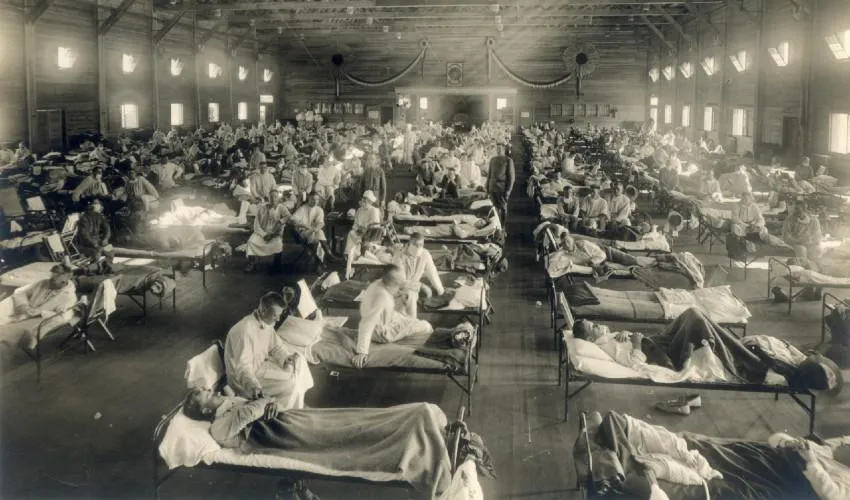
The Social Effects of the Spanish Flu
Bocconi research shows that a botched public response to an epidemic can have long-term effects on people's interpersonal trust that persist after a century and a few generations.
Arnstein Aassve (Professor of Demography), Guido Alfani (Professor of Economic History), former Bocconi student Francesco Gandolfi, and Bocconi Postdoctoral researcher Marco Le Moglie find that American citizens whose European ancestors migrated to the United States after having experienced the Spanish flu in their home countries display lower levels of social trust than the descendants of those that migrated earlier.
The 1918-1919 Spanish flu was the worst epidemic of modern history. Over the course of three waves, it is estimated to have caused between 50 million and 100 million deaths globally. In addition to its negative demographic consequences, this epidemic led to serious social disruptions in what the authors describe as "a textbook case of utter failure of health care institutions both in containing the spread of an epidemic and in providing effective care." As a consequence, a climate of general mistrust emerged and, as laid out in their paper, appears to have affected individual behaviours permanently.
An individual's trust is shaped by both contemporary events and the beliefs and norms inherited from ancestors. Therefore, inherited trust can be estimated from present levels of trust. Using data from the General Social Study, the authors obtain an estimate of trust as well as demographic and attitudinal characteristics of individuals in the US between 1978 and 2018.
Crucially, the survey provides information on the country of origins of the respondent's parents and grandparents. Taking advantage of different waves of immigration, the authors are able to measure the differences of inherited trust between those whose ancestors immigrated before and after the spread of the Spanish flu. In addition, they control for the severity of the epidemic using data on the country of origin's mortality rates.
They find that an increase in mortality of 1 death per thousand resulted in a 1.4 percentage points decrease in trust. Moreover, the effect is significantly more negative among countries that remained neutral during WWII. Among those countries, an increase in influenza mortality of 1 death per thousand resulted in a 2.1 percentage points decrease in trust. It suggests that countries that did not experience any war censorship on media enabled citizens to evaluate the severity of the epidemic more extensively. This in turn seems to have strengthened the negative effect of the epidemic on social trust.
These findings provide useful insights for the current COVID-19 crisis, in a time of free and global media. In particular, failure to provide a coordinated and united response to the current epidemic could not only have important negative economic and social consequences in the short term, but could lead to lower social trust over several generations. On the contrary, "a successful and strong response from governments could lead to greater unity and solidarity," suggests Professor Alfani. While he highlights that "this remains a highly hypothetical scenario," effective leadership and a common sense of purpose have the potential to increase social trust in a time of crisis.
Arnstein Aassve, Guido Alfani, Francesco Gandolfi, Marco Le Moglie, Epidemics and Trust: The Case of the Spanish Flu, IGIER Working Paper Series, n. 661.